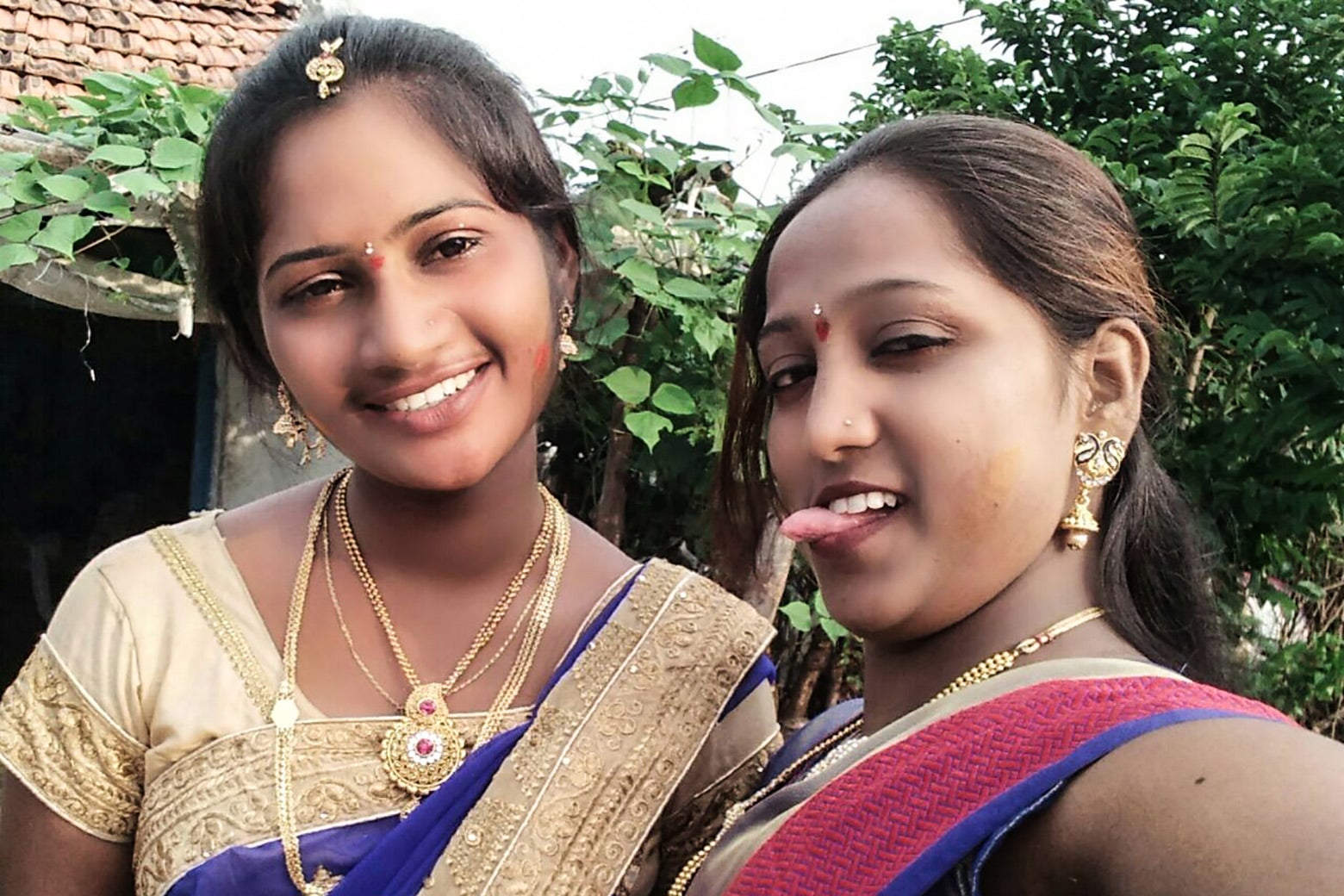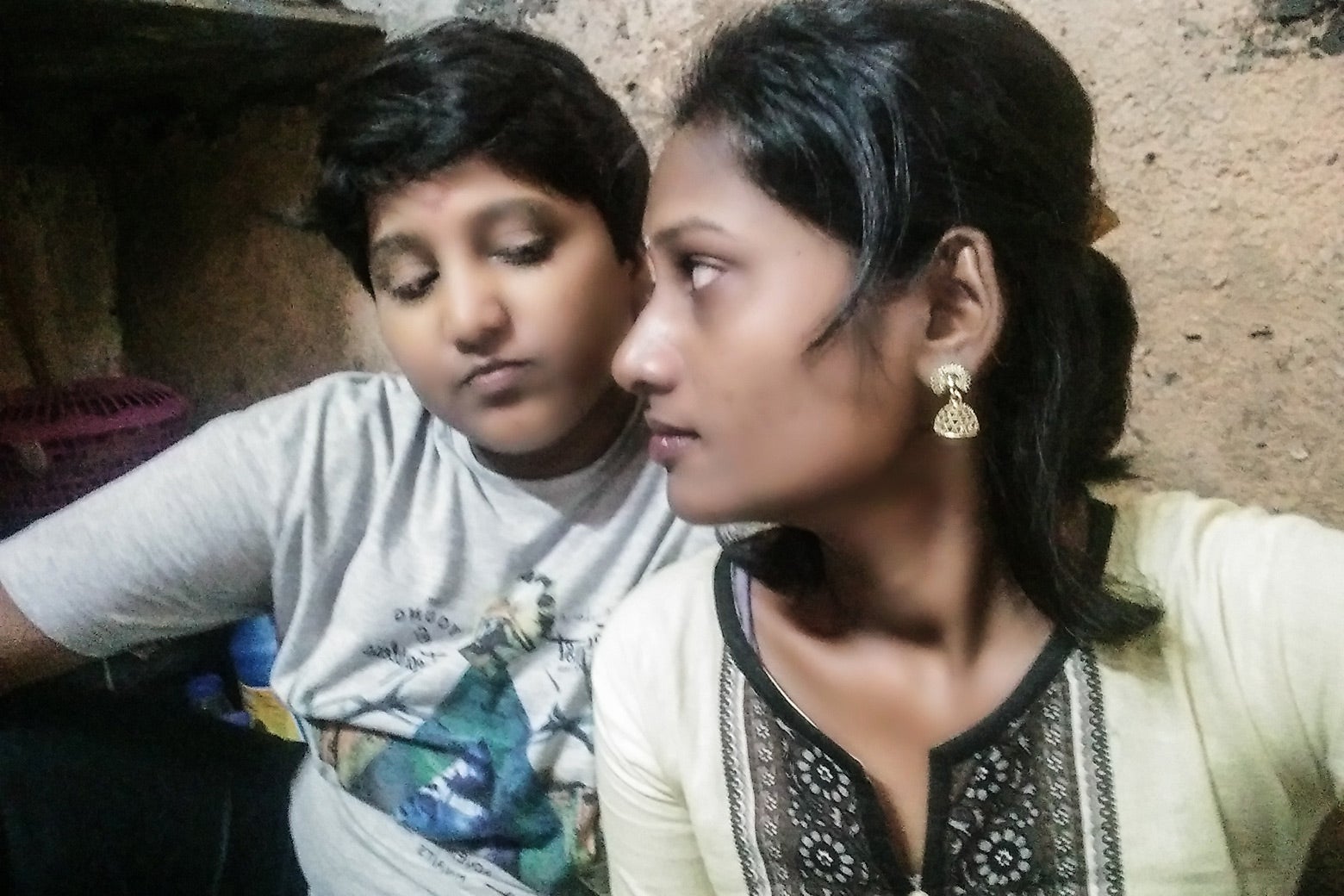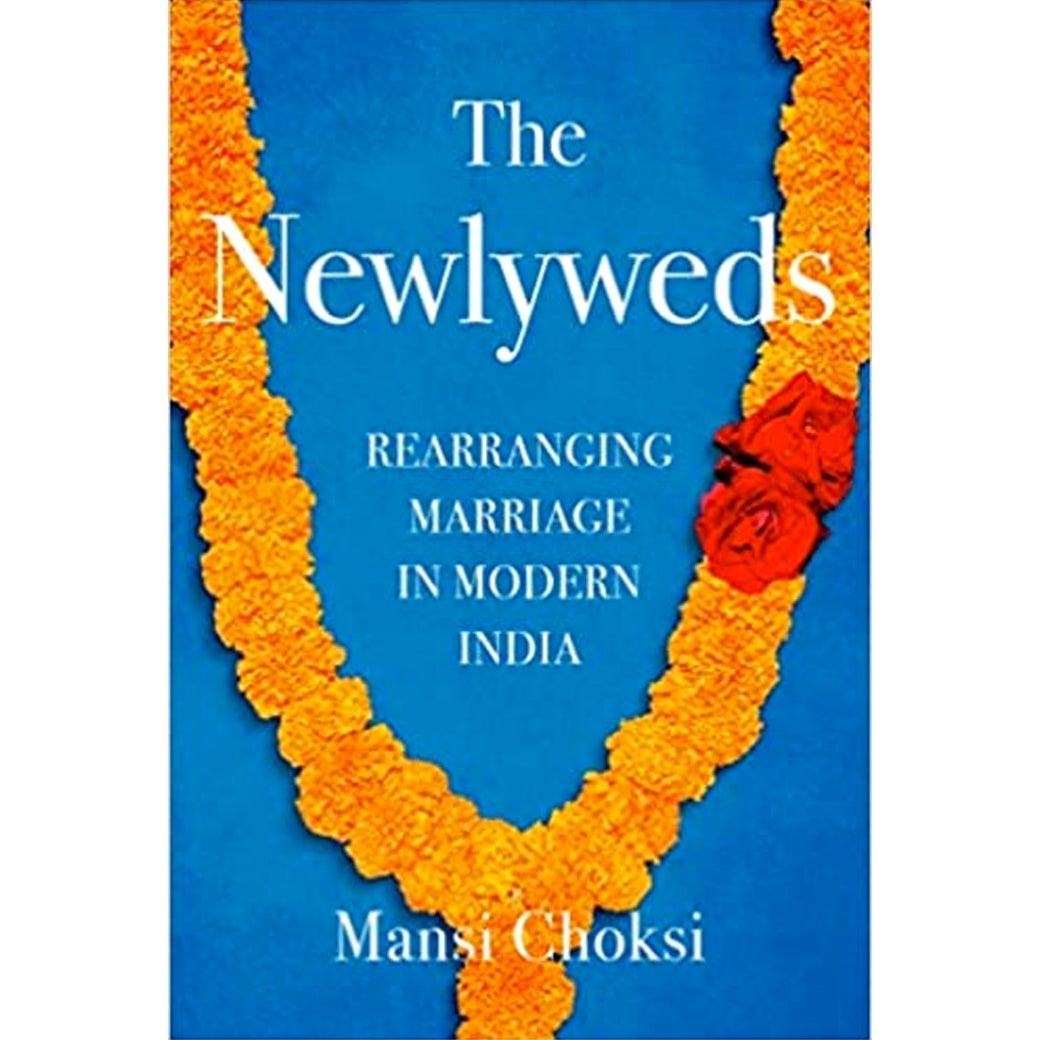The day after her grandmother died suddenly on a hot summer day in 2017, Reshma Mokenwar stretched out in front of the family television. She was a 28-year-old sales assistant from Mumbai with a heart-shaped face stained yellow from a lifetime of turmeric fairness treatments and a tongue sharpened through the knife grinder of a bad marriage.
Secretly, Reshma was thrilled that her grandmother was finally burning in a hell that, for once, was not of her own making. But the old woman’s crumbling home in Chikhali, a godforsaken village on the border of the states of Telangana and Maharashtra, filled her with gloom even on good days like these.
As her mother, sisters, and aunts covered their heads with the folds of their white saris and squatted by the door to receive condolences, Reshma drifted in and out of sleep under the spell of television home shopping commercials.
She closed her eyes, pictured a door, and waited for it to open. After a while, when no one materialized, she grunted and turned over to reboot the dream. This time she saw eyes that burned with the luminosity of a thousand suns and tasted a scent that was the earth after it had rained. Preethi Sarikela, an 18-year-old daughter of her father’s cousin’s sister from the village who was stretched out on the bed beside her, shifted a lock of hair from her face and smiled. Even though Reshma had never met this girl before, it was Preethi who felt like her own in a room full of familiar faces.
“You girls have any shame?” An uncle’s voice boomed from outside the dreamy fog. “Want me to beat it into you?” Preethi’s eyes clouded with embarrassment, and she untangled herself from Reshma to make tea for a new flock of relatives at the door.
Years earlier, when Reshma found herself alone on the ground of a cotton field contemplating suicide, she had asked herself how much of her was alive and received no reply. Days later, when she woke up on a hospital bed, she vowed to never give up another opportunity to live. Now she followed Preethi to the kitchen and tapped her shoulder. “I am Reshma,” she said. “Did you feel a fire between us?”
On the night of their wedding, Reshma didn’t want her husband to touch her. When he slipped his hand inside her blouse, she threatened to break his arm and throw it to a pack of dogs. He slapped her, told her to lay down as instructed, and climbed on top of her. When he grew tired of her protests, he buried his head in her chest and kept moving. The next morning, Reshma went to work in her husband’s place in the cotton fields while he blew his dowry money in jugs at the corner liquor shop.
“Don’t think too much,” Reshma’s mother Rekha told her on the phone when she sensed her disquietude. “It’s a bad habit.”
Night after night, Reshma lay in the stench of her husband and tried to make sense of the anger, shame, disgust, and betrayal that consumed her when his ragged nails tore into her skin like a rusted farm sickle. She reminded herself of her mother and clenched her eyes shut to quit the bad habit of thinking too much. She saw the low-ceilinged home of her childhood in Friends Colony. A termiteproof shrine of Lord Ganesh and Lord Krishna fitted with a disco ball and an electric candle. The pink-and-yellow peplum frock of her school days. Her mother’s small hands. An overturned dinner plate. A dangling water pipe. Suddenly the silent images came alive, and she started to shake with anger. She saw herself as a child, crashing into her father, kicking him, biting him, punching him, and shouting at him to leave her mother alone. She saw him dashing around madly, flogging Rekha with a rubber hose, and her eyes filled with tears.
When Reshma looked into the mirror, she saw glimpses of her mother, and a familiar wave of confused anger broke inside her. Why did her mother bring her father a cup of tea for his headache after he had brutally beaten her the night before? And why did she bring her husband a cup of tea the morning after she felt that he had forced himself on her?
Those days, whenever Reshma talked to her mother, she could tell that whatever Rekha said to her was an echo of something her brothers and father wanted her to know:
“Your father is working overtime at the driving job to repay the loan he took for your dowry.”
“Your brother Ganesh has rented out his two taxis because he is still burdened with bills from your wedding.”
“Your brother Kishen has crushed his political ambitions and become a bank clerk to help out with household expenses.”
One day Reshma finally snapped. “A woman should leave her parents’ house in a palanquin and return only in a bier,” she said sharply. “That is what you want to tell me?”
One night in 2013, days after their sixth wedding anniversary, Reshma’s husband dragged her to a shack in the landlord’s cotton field in a fit of drunken rage. Why did she not want him to touch her? Was she sleeping with her brother-in-law? Did he satisfy her after he satisfied her sister? Reshma looked up at the sky, saw the skeletons of cotton stalks swaying in a pale moonlight, and it occurred to her that she wanted to be free. She emptied a bottle of pesticide into her mouth, stared back into her husband’s bloodshot eyes, and wiped her lips.

“I am Reshma,” she said to Preethi in her grandmother’s kitchen four years after she climbed out of a hospital bed and walked out on her husband for good. “Do you also feel there is a fire between us?”
The clatter of teacups in Preethi’s hands stopped. “Yes,” came a bell-clear reply.
For the next 13 days, during the time it was said to take for her grandmother’s soul to break free from her mortal remains and transcend into the universe, according to Hindu funeral customs, Reshma and Preethi became fused into each other.
They wandered off on long walks together, fell into stacks of hay, sang songs, and felt the sun on their faces. Reshma braided Preethi’s hair. Preethi shaped Reshma’s eyebrows. When they made love, they let their bodies come alive.
So far, Reshma had floated through life, never willing the direction she was going in. Now, in Preethi’s company, she was starting to feel her heels finally digging into the earth. In their short time together, Reshma came to know a happiness that permeated her deepest memories and allowed her to finally grieve them.
One afternoon, resting her head in Preethi’s lap, Reshma narrated a sequence of dialogues she had recently memorized from a TV show called The “Other” Love Story. “This world, these rules, the unseen society, binding love, incomprehensible relationships, must-do obligations, the order, the rights and the wrongs of the conditioned mind. All this on one side,” Reshma told Preethi. “The look in your eyes when you look at me, that touch in your hand when you hold me, that word on the tip of your tongue which stays unsaid, and that sigh which gets heavy when we move closer.” Preethi paused to listen carefully, and Reshma continued: “That magnetic energy that gets created when we share the same space. And that tremble which gets etched on our beings when we move away. All this on the other side.”
On the 13th day of Reshma’s grandmother’s wake, when the extended family prepared to disperse back to their towns and villages across Maharashtra and Telangana, Preethi’s eyes swept across the room and rested on Reshma in a silent accusation. Was she just going to watch and allow them to go their separate ways?
Reshma ran up to Preethi’s mother and took the bags from her hand. “Let me carry those for you,” she said. “Your knees must be hurting.” Narsa, a scrawny woman hunched from a lifetime of picking cotton, doddered behind, listening eagerly as Reshma exaggerated her experience as a sales assistant at Patanjali Ayurved, a chain of shops selling Ayurvedic medicines invented by a famous yoga guru, Baba Ramdev.
“Ginger and root pepper are good for joint pain,” Reshma said to Narsa as she helped her climb into the minibus headed for their village. “If you have any pain, call me, and I’ll make it all vanish.” As the bus turned, Reshma ran up to Preethi’s window and winked, hinting that she had figured out a plan for them to see each other again.
Days later, Reshma appeared at Preethi’s doorstep in Bazarhathnoor, a farming village 500 miles from Mumbai, carrying a bag stuffed with the Patanjali Ayurvedic medicines she had recommended to Narsa. As Reshma pulled out fairness creams, oils, face packs, shampoos, and conditioners, Preethi, bubbling with laughter, stood in the corridor and watched her mother’s face light up.
“Have you met Baba Ramdev?” Narsa wanted to know. The influential guru, who appeared in a saffron loincloth on television screens across the countryside, claimed to harness ancient Indian wisdom into affordable cures for diabetes, hypertension, baldness, heart problems, impotence, cancer, and homosexuality.
From the moment Reshma stepped into Preethi’s house, she made herself at home, a useful strategy she had learned from her grandmother. If you didn’t need to feel welcome, how could you be made to feel unwelcome?
Reshma slipped her finger into the hook of Preethi’s pinky as she marveled at how Narsa’s cotton crops had blossomed into fluffy little clouds. She followed the rustle of Preethi’s anklets to the kitchen and sank her face into her neck. They pressed their bodies together in a darkened afternoon room as Preethi’s younger brother, Tarun, recited multiplication tables outside.
One evening, when Preethi complained about a pulled muscle in her leg, Reshma asked if she wanted a massage, and began kneading her calves. Preethi’s father, Ushanna, who drank his tea silently in another corner of the room, watched Reshma’s hands move in widening circles farther and farther up his daughter’s legs. Preethi’s face grew soft in a way that made him uncomfortable.
Ushanna cleared his throat. “You must have important work in Mumbai,” he said. “Don’t let us keep you from work.”
“We are family,” Reshma answered. “What’s more important than family?”
As months went by, and the frequency and duration of Reshma’s visits increased, Preethi’s parents started to resent her for unsettling the peace of their home. Suddenly Preethi’s conversation overflowed with foolish ideas about moving to the city for work. Reshma’s name rolled off her tongue when she meant to call out to an aunt or a cousin. In Reshma’s company, she looked at her parents with a wild look in her eyes, as if she had just remembered that they also lived there.
Preethi’s father worried that his daughter was losing interest in her studies, putting the whole family in danger of losing the scholarship that covered the cost of meals when their crop failed. When he sat down to talk to her, he watched her eyes dreamily wander to the triangle of sunlight where Reshma squatted in a frothy rivulet, washing clothes as she sang to herself.
“Have you gone deaf?” Preethi’s mother would explode at the defiance that blinked back in Preethi’s eyes. When Preethi became so engrossed in Reshma’s company, giggling at whatever inside joke was always brewing between them, Narsa’s voice stopped reaching her.
The day before Bathukamma, the festival of flowers to celebrate the goddess of fertility during harvest season, Preethi insisted on taking Reshma to a shrine at the outskirts of the village, where she somehow always managed to find peace whenever her mind was in an upheaval. In the past weeks, Preethi told Reshma, she had felt herself vanish into feelings she could not explain, worrying about what the future held for them.
“I want this forever.” Preethi reached for Reshma’s hand. “That is the only way I will be at peace.”
“We will be together forever,” Reshma promised.
“Our relationship will become unbreakable only once it gets a name,” she said. “We have to get married.”
Reshma unhooked her gold locket and put it around Preethi’s neck. “Mrs. Preethi Reshma Mokenwar,” she announced. “My wife and my life.”
That night, as Reshma and Preethi stretched out together in front of the television, entwining their bodies under a blanket, blushing at the fresh memory of their secret wedding, Narsa watched from a distance, drying pots and pans with the loose end of her sari and putting them down with an escalating violence. What did Reshma want from them? Why was she refusing to go home? Why was she always stuck to Preethi? Why was Preethi always stuck to her?
“Who will pay the rent here if she keeps running away from work?” Reshma’s father, Babu, complained to Preethi’s mother on the phone. “Her mother’s hands have turned into jute from scrubbing dirty dishes. How long will my old bones sit in a driver’s seat?”
“Preethi’s studies are also suffering,” Narsa said. “What’s really going on between them?” Babu asked.
The obviousness of the question suddenly plunged Narsa into an abyss of worry. After that, she could not rest. She stood in the kitchen, silently burning at the sight of Preethi’s and Reshma’s sleeping bodies. They were curled up facing each other, as if they had fallen asleep midsentence, and Reshma’s hand rested loosely on Preethi’s waist.
Narsa picked up a cooking pot and threw it to the floor. Reshma sat up with a start and sleepily watched Narsa drag Preethi’s whimpering body to a mat in her corner of the room. Hours later, when Ushanna’s snores had turned into long hisses, Narsa sensed Preethi crawl out and climb into Reshma’s sleeping mat again.
The next day, when Reshma sat down to braid Preethi’s hair while she arranged wild flowers in the shape of an ancient temple dome for the harvest festival, Narsa threw Reshma’s bags outside the door and told her to never come back.
After Reshma Mokenwar was asked to leave and the blanket of wilting flowers from the harvest festival was swept aside, a mournful silence fell over the Sarikela household. To Narsa, it was the sound of shame at whatever perversity had been going on between her daughter and “the divorcée from the city.” To Ushanna, it was the sound of a fragile peace that was shattered every now and then by the shriek of his daughter’s ringing phone and the echo of cries that followed it.
Slate receives a commission when you purchase items using the links on this page. Thank you for your support.
For Preethi, it was the pop of a bubble bursting. Within days of meeting Reshma, she felt as if her heart had been gently cracked open and laid out in the sun. It was the first time in her life that she had experienced living for herself.
“If we can’t live together,” Preethi whispered into the phone to Reshma in the days after her parents asked the older woman to leave, “let’s die together.”
This article is adapted with permission from The Newlyweds: Rearranging Marriage in Modern India by Mansi Choksi. Copyright © 2022 by Mansi Choksi. Published by Atria Books, a division of Simon & Schuster LLC.

